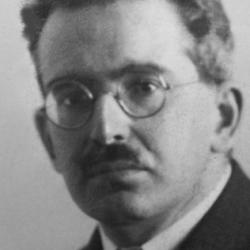In several places in Scripture, idols are characterized by their sensory deprivation (Psalms 115; 135). They have eyes but cannot see, ears but cannot hear prayer, noses but cannot smell incense of sacrifice. By implication, Yahweh the living God can do all these things.
Elaine Scarry points out (The Body in Pain, 132-3) that Yahweh distinguishes Himself as the God who has working, sentient organs: “Divine contempt for these statues is based on the fact that they do not see, do not hear, do not eat, do not breathe, do not move—based, that is, on the startling fact that, despite their material form, they do not have the attributes of bodily sentience. On this remarkable basis of sentience God continually differentiates himself from the idols. It is this that they lack. It is this that He has.”
In Jeremiah, this sentience extends to the experience of pain: “He now not only reminds his people that he is alive, that he sees, moves, hears, breathes (and by implication, even eats, for the absence of this attribute is included in his denunciation of wooden and stone objects), but even that he experiences the most passive, extreme, and unselfobjectifying form of sentience, physical pain. This acknowledgment occurs, for example, in chapters 8 through 12 of Jeremiah where, amid lines condemning the worship of Baal or other gods and idols, comes the repeated cry, indistinguishably that of the prophet and of God, I am wounded.”
Scarry sees this as a development in the Old Testament’s understanding of God: “Thus the graven images give rise to a situation in which God begins to claim as his own sensory attributes he almost nowhere else has occasion to own as a defining characteristic, sensory attributes that he in other contexts sometimes explicitly rejects (e.g., ‘and though they cry in my ears with a loud voice, I will not hear them’ Ezekiel 8:18). Their failing is a failing he has elsewhere taken pride in.” That isn’t the case. As soon as we read that God made man in His image, we know He is a God who has the capacities that we have, has them as their origin and archetype. “Shall he who made the ear not hear?” asks Psalm 94. Scarry also tends to blur the Creator-creature distinction. That God can hear doesn’t mean He has physical ears.
Still, Scarry makes a remarkable, underdeveloped point in Christian theology: The living God differs from pretenders precisely in having sentience, precisely in His capacity to do what human bodies do, precisely in His capacity for passivity and pain.















